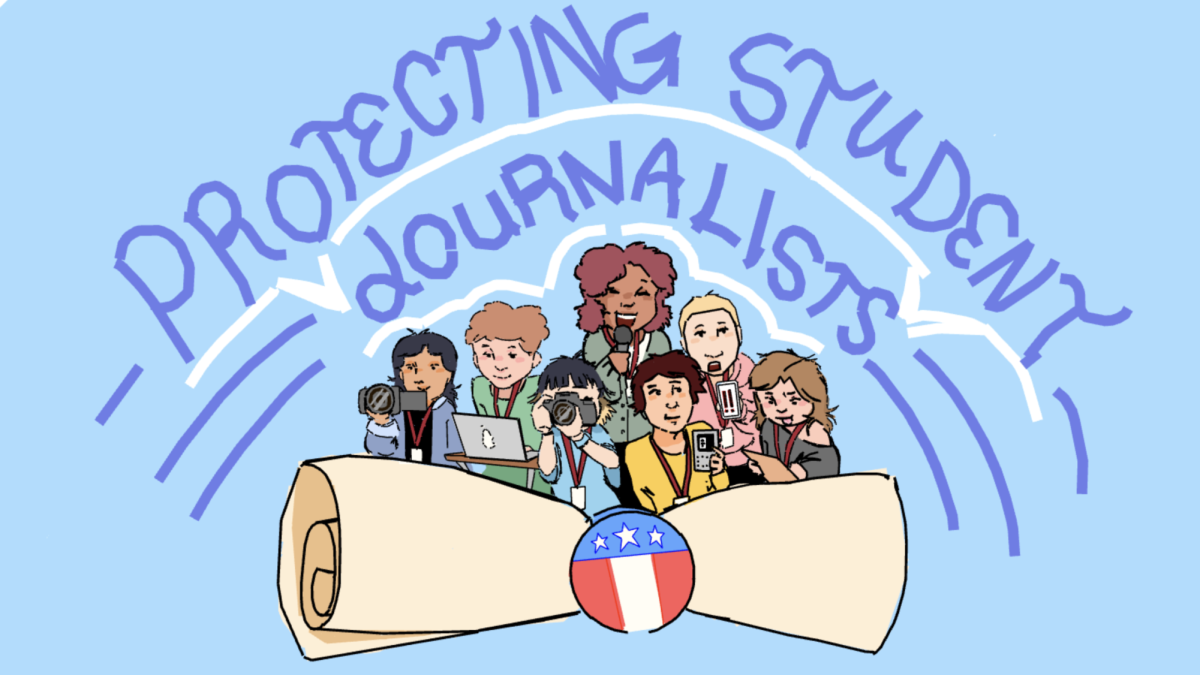[Opinion] Political cultures built on superficial values mislead voters
January 11, 2021
“Other politicians are untrustworthy. Other politicians are devious. Other politicians manipulate. But I am responsible. I am virtuous. I seek the greater good.” These are the claims that drive political culture, wherein a political influencer seeks to convince their audience to support them, as opposed to other influencers.
However, their fixation on promoting their character creates a political culture that ignores whether their audiences understand their platforms, political actions and context.
Many people are surrounded by internet, mass media and communication, which is where popular culture thrives. Since technology is a major influence in people’s lives, politicians naturally recognize the value of associating with audiences’ interests through their various platforms.

This can be seen through political figures’ participation with games such as “Animal Crossing,” congresswoman Alexandria Ocasio-Cortez’s live streaming of “Among Us” and references to trends and memes that appeal to younger demographics. While these tactics have varying levels of success, they still exemplify the potential that popular culture holds to promote their character and build their reputation.
For example, in his New York Times article, “How Joe Biden’s Digital Team Tamed the MAGA Internet,” columnist Kevin Roose writes that by analyzing their audience’s interests, President-elect Joe Biden’s digital marketing team was able to ultimately rally support for his presidency in the 2020 election.
Biden’s team’s strategies of consistent messaging, use of varied social platforms and opposition to misleading narratives towards diverse audiences created an online political culture that gained traction with their targeted audiences.

Another example is of rural civilians’ devotion to the political culture created by President Donald Trump during the 2016 election, as written by professor of political science Katherine Cramer in the Vox article. She said, ”For years, I’ve been watching anti-elite fury build in Wisconsin. Then came Trump.”
By recognizing the resentment of rural communities towards urban society and the federal government due to being overlooked and disdained, Trump created a message that resonated with those dissatisfied demographics. His appeal of finally bringing the change and relevance that good American citizens deserve solidified the imagery of a common ground and a common enemy, and secured the support for his presidency.
However, when the promoted values of political figures are purely based on their public persona, they build a facade that obscures these politicians’ underlying agendas. In his famous book, “The Prince,” Niccolo Machiavelli writes on the traits that allow people to remain in power.
When ruminating on being merciful, faithful, humane, religious and upright, he states that “it is unnecessary for a prince to have all the good qualities I have enumerated, but it is very necessary to appear to have them.”
This is exemplified by Ocasio-Cortez’s popular Among Us stream, which reached over 435,000 viewers. Although her outward objectives are virtuous, her establishment of a parasocial friend relationship with her fans obscures their ability to separate her character from her political platform, which leads to their ignorance towards debated political issues such as her platform of social democracy.
This misunderstanding is all the more relevant to the modern political landscape. As fear associated with the Red Scare and other conflicts surrounding socialism, communism, and other related concepts fades with history, these concepts are more openly received. According to the Washington Post article, “A majority of millennials now reject capitalism, poll shows,” this trend is demonstrated by younger peoples’ rising support for socialism and resentment towards capitalism.
However, the popularity of socialism is mirrored by younger people’s widespread misunderstanding of socialism. According to a poll by The New Guard magazine, a majority of people ages 13 to 22 cannot accurately define what socialism or free enterprise entails.
Because Ocasio-Cortez’s appeal to younger people is derived from her persona and her interactions with popular culture, those that do not understand her political ideology of social democracy base their support for Ocasio-Cortez on their attachment to her, rather than on how her political objectives as a social democrat influence their livelihood and goals.
Additionally, misleading claims that substantiate politicians’ cultures cause their audiences to adopt inaccurate assumptions. For example, people’s generalizations of societal factions, such as political parties, can be vastly exaggerated.
According to Douglas Ahler and Gaurav Sood’s report, “The Parties in our Heads: Misperceptions About Party Composition and Their Consequences,” surveyed respondents thought that “38.2% of Republicans earned over $250,000 per year when just 2.2% of GOP supporters do,” with similar overestimations of the share of LGBTQ+ Democrats and evangelical Republicans.
Skewed worldviews are caused by the divisive nature of these political cultures based on inaccurate claims. When these cultures face opposition, they drive the polarization of worldviews because audiences seek to apply consistent logic to a fundamentally incomplete reality.
This cognitive dissonance psychologically leads people to favor claims that support their worldview and to reject information that challenges their reasoning, which further drives disagreeing communities apart.
While the catering of political figures to their audience’s desired values is inherently manipulative, the need for politicians to gain support for their cause is driven by their want of accomplishing their goals. They use people’s need for security in a community and common worldview to gather a deferential following, but this establishment of false ideals and attachments obscures how people have the potential to delegitimize their political power.
In understanding how politicians influence their audience, as well as when issues are misrepresented due to a lack of understanding, people can determine the platforms they support rather than devote themselves to an unwarranted faith.










